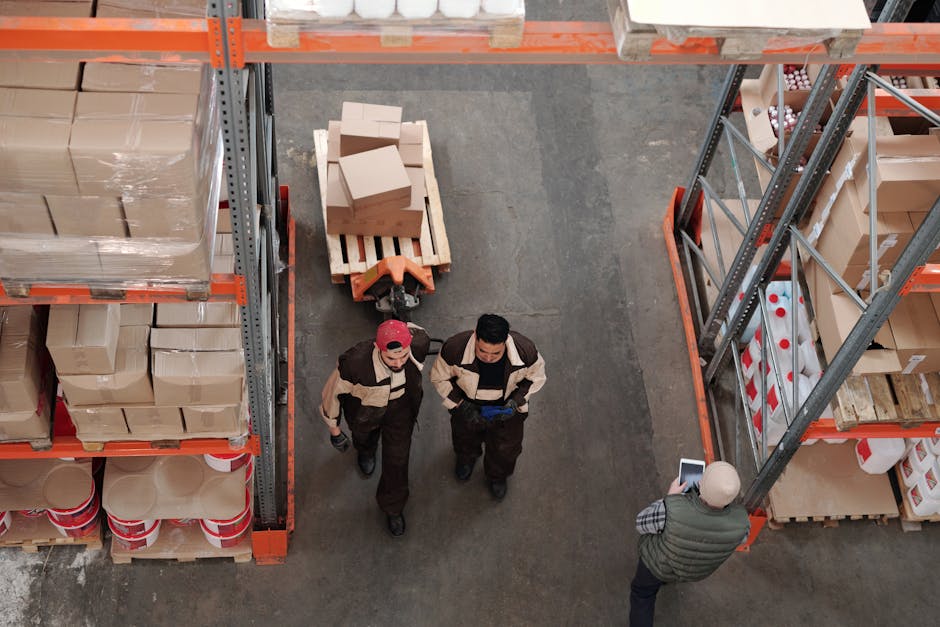How Blockchain is Revolutionizing Industry Operations
Picture this: a transparent ledger that cannot be altered, a system that removes intermediaries, and a network where trust is built right into the code. That’s blockchain in action, and it’s transforming how industries operate. From supply chain management to healthcare, this technology is proving itself to be more than just a buzzword tied to cryptocurrency.
What Exactly Is Blockchain?

At its simplest, blockchain is a decentralized digital ledger that records transactions across multiple computers. Think of it like a Google Spreadsheet shared among countless users worldwide, but with one major difference: once an entry is made, it can’t be changed or deleted. Each record, or "block," is linked to the previous one, forming a chain, hence the name.
Why does this matter? Because it eliminates the need for third-party verification. Traditionally, transactions require middlemen, banks for money transfers or brokers for contracts. Blockchain removes this requirement by allowing participants to verify transactions directly through cryptography. It’s fast, secure, and incredibly efficient.
Transforming Supply Chains
The food industry offers a compelling example of how blockchain is reshaping supply chains. Consider Traditional tracking methods often involve multiple systems that don't communicate with each other effectively. This can lead to gaps in data, or worse, contaminated products reaching consumers because the source of contamination can’t be pinpointed quickly.
Enter blockchain. Companies like Walmart are already using it to track produce from farm to shelf. By scanning a QR code on a product, you can instantly access its entire history: where it was grown, when it was harvested, and how it was transported. This level of transparency not only builds consumer trust but also enables rapid response during recalls. If there’s an E.coli outbreak linked to lettuce, blockchain makes identifying the source nearly instantaneous, a process that used to take weeks.
Revolutionizing Healthcare Records
Healthcare is another sector benefiting from blockchain’s unique capabilities. Patient records are often scattered across multiple systems and providers, making it difficult for individuals to access their own data or ensure its accuracy. Errors or delays in retrieving medical histories can lead to misdiagnoses or inappropriate treatments.
Blockchain addresses these issues by creating a unified system where medical records are securely stored and easily accessible by authorized parties. For instance, Estonia has implemented a nationwide blockchain-based healthcare system that allows citizens to control who can access their medical data. This not only improves privacy but also reduces administrative costs and enhances overall efficiency.
Streamlining Financial Transactions
The financial sector was among the first to explore blockchain's potential, and for good reason. Traditional banking systems often involve lengthy processes and high fees for cross-border transactions. Sending money internationally can take days and incur significant costs due to multiple intermediaries.
Blockchain changes this by enabling peer-to-peer transactions without middlemen. Ripple, for example, uses blockchain technology to facilitate real-time global payments with minimal fees. Imagine transferring money from New York to Tokyo in seconds instead of days, that’s the kind of efficiency we’re talking about.
This doesn’t just benefit individuals; businesses conducting international trade gain significant advantages as well. The speed and cost-effectiveness allow companies to allocate resources more effectively rather than tying them up in slow-moving transactions.
Tackling Counterfeiting in Luxury Goods
The luxury goods market faces constant challenges from counterfeit products flooding the market. Blockchain offers an innovative solution by providing digital certificates of authenticity for high-end items like designer handbags or watches.
LVMH Group (owner of brands like Louis Vuitton) has launched its own blockchain platform called Aura. Each product is assigned a unique identifier recorded on the blockchain, ensuring its provenance can be traced back through every step of production and sale. When buying a luxury item, customers can verify its authenticity with complete confidence.
Challenges Along the Way
No technology is without its hurdles, and blockchain is no exception. Scalability remains a significant concern; as more users join the network, processing times can slow down considerably. Energy consumption is another issue that often comes up in discussions about blockchain’s environmental impact, particularly regarding networks like Bitcoin's that rely on energy-intensive mining processes.
Regulation also plays a critical role in determining how broadly blockchain can be adopted. While its decentralized nature offers freedom from traditional oversight mechanisms, governments are still grappling with how best to regulate its use without stifling innovation.
Whether it's making supply chains more transparent, improving access to healthcare records, speeding up financial transactions, or curbing counterfeiting in luxury goods, this technology is driving tangible change. The challenge now lies in addressing its limitations while educating more people about its potential beyond cryptocurrencies like Bitcoin or Ethereum. As industries continue exploring new ways to integrate blockchain into their operations, one thing becomes clear: this isn’t just another tech trend, it’s a fundamental shift in how we think about trust and transparency in business.
This article was generated by AI